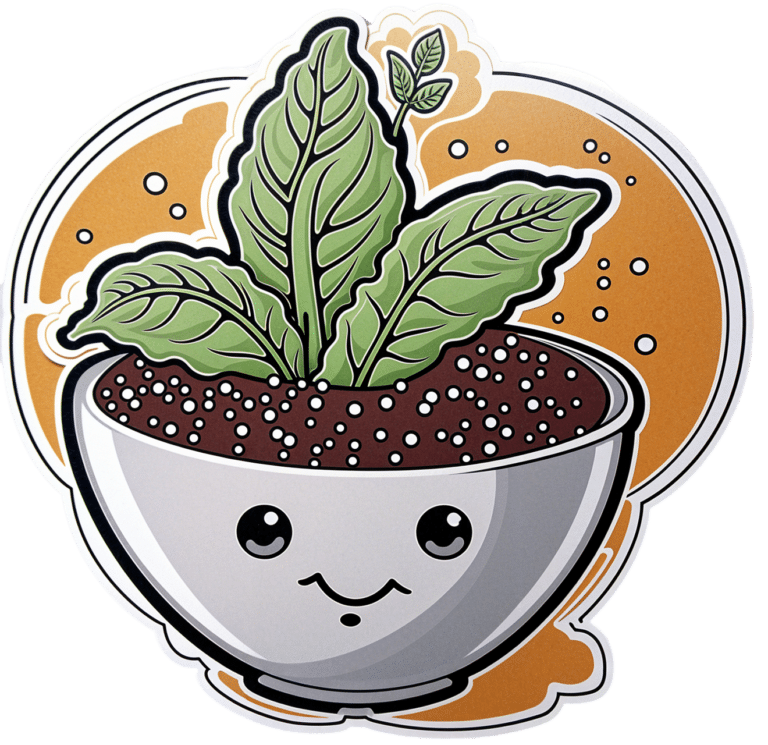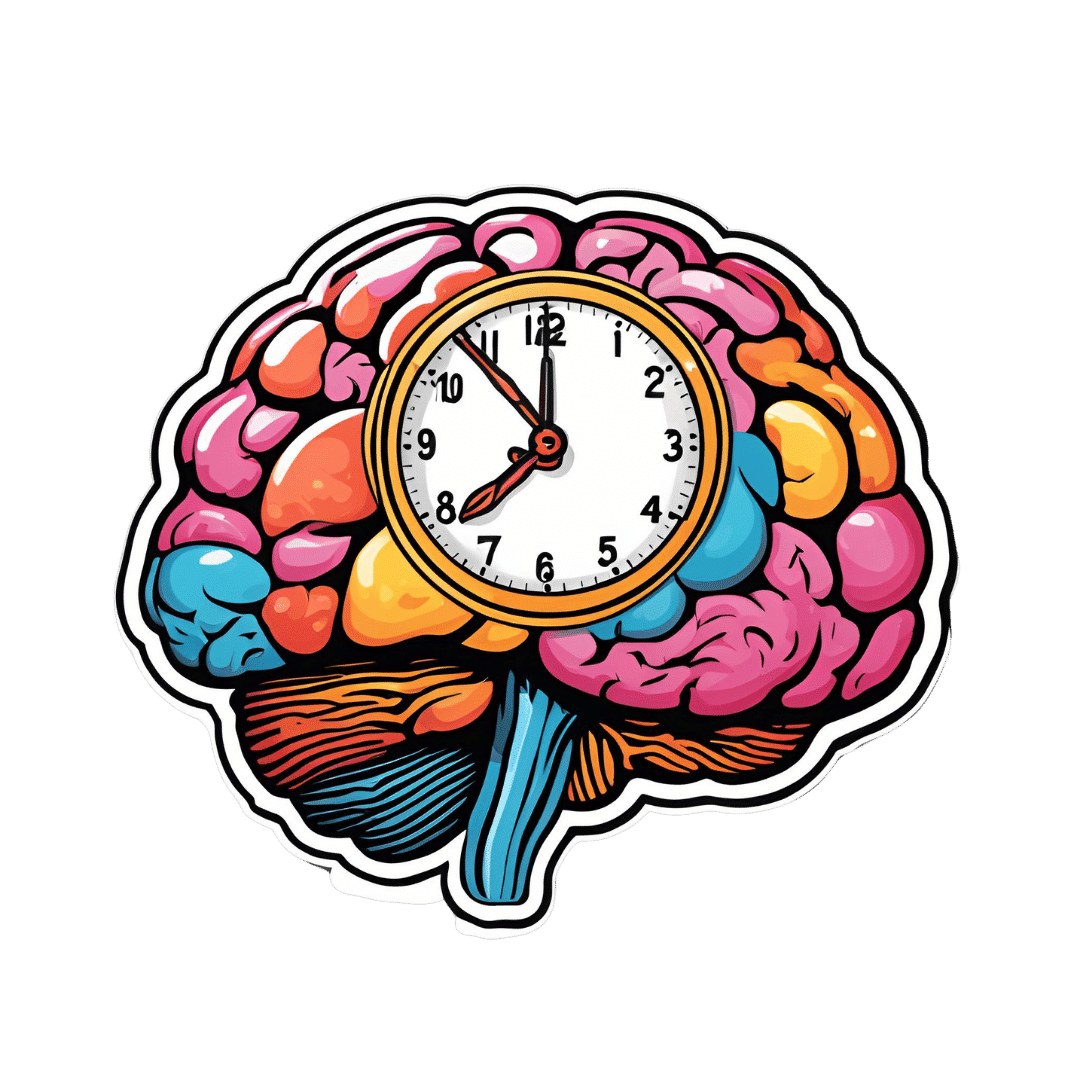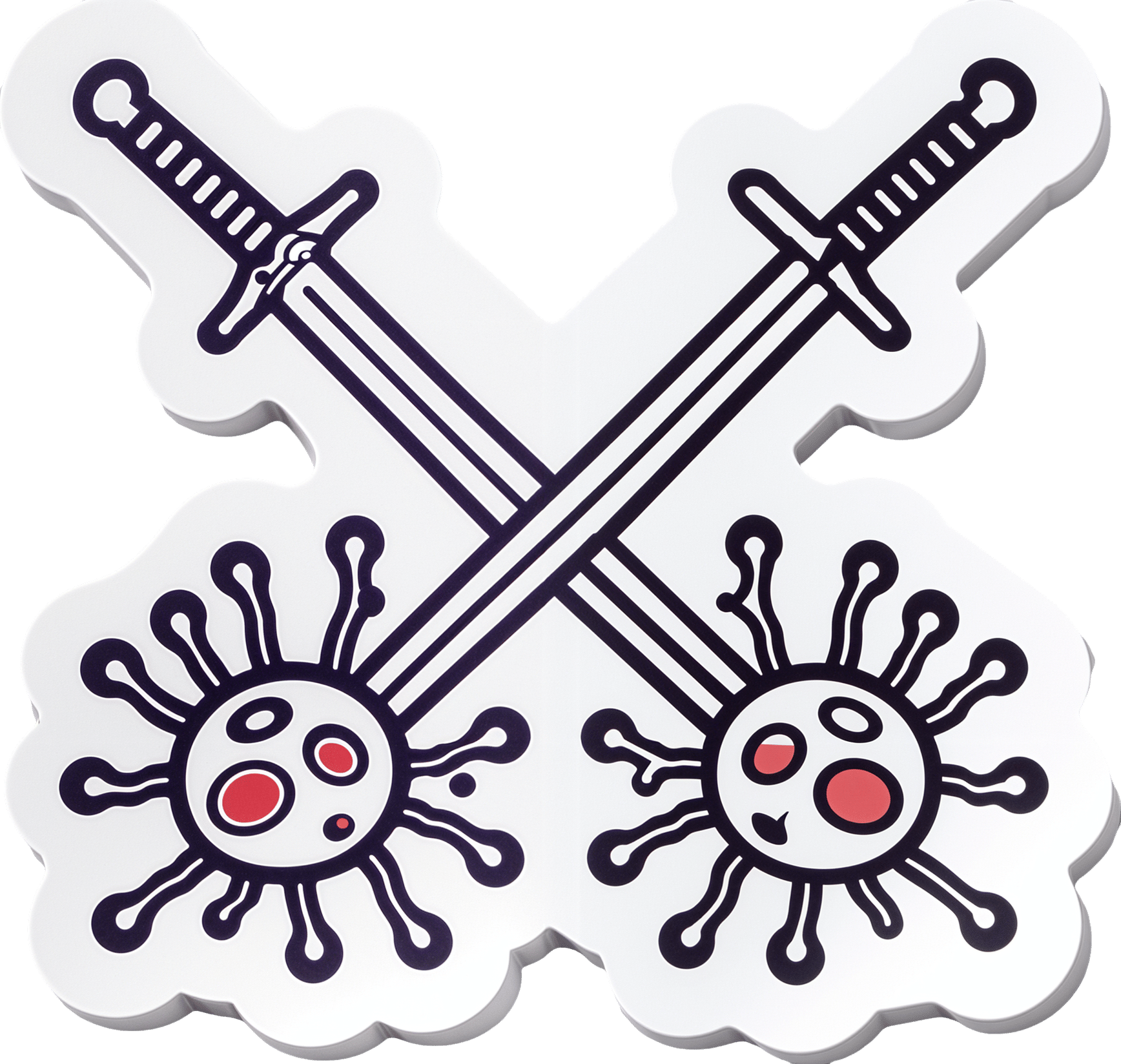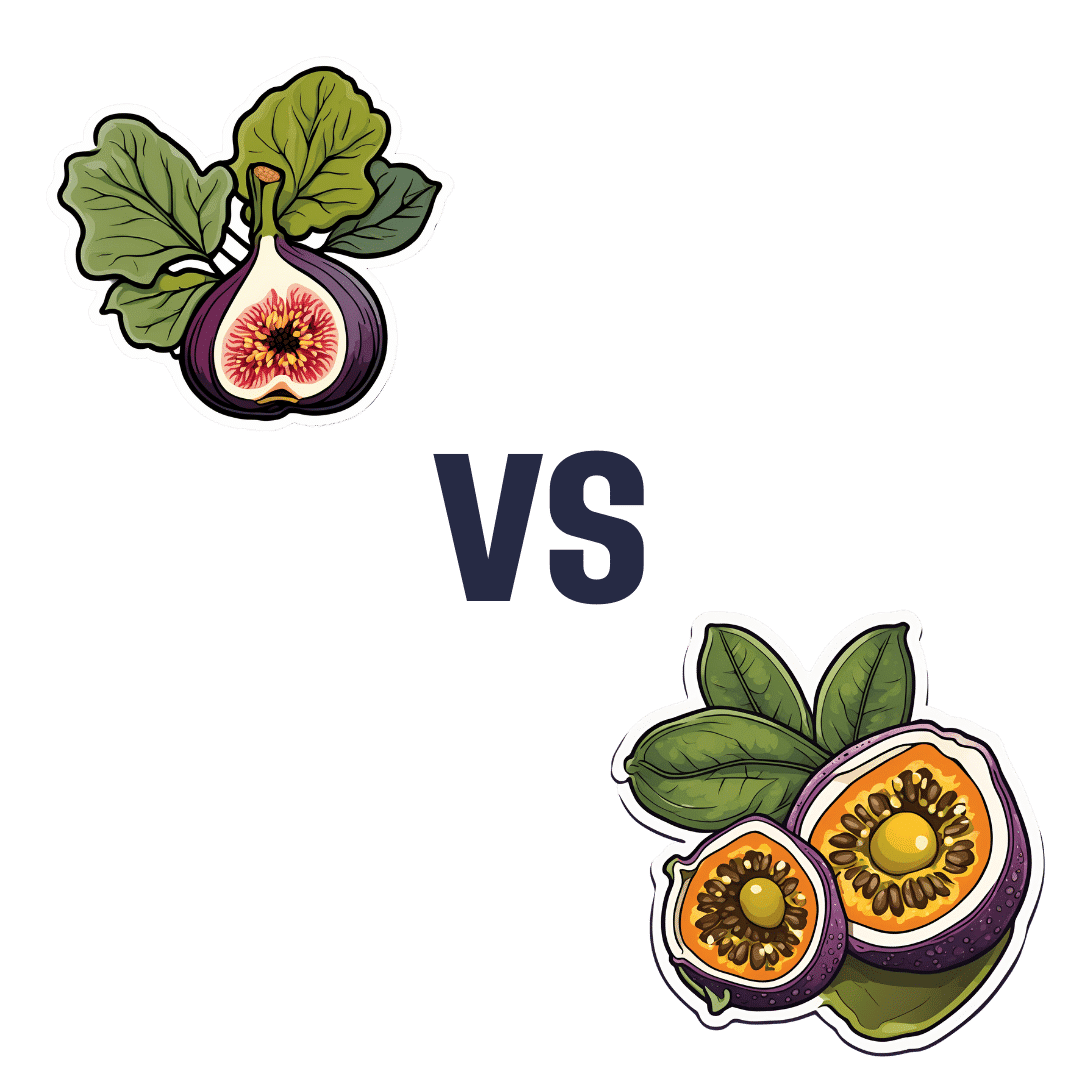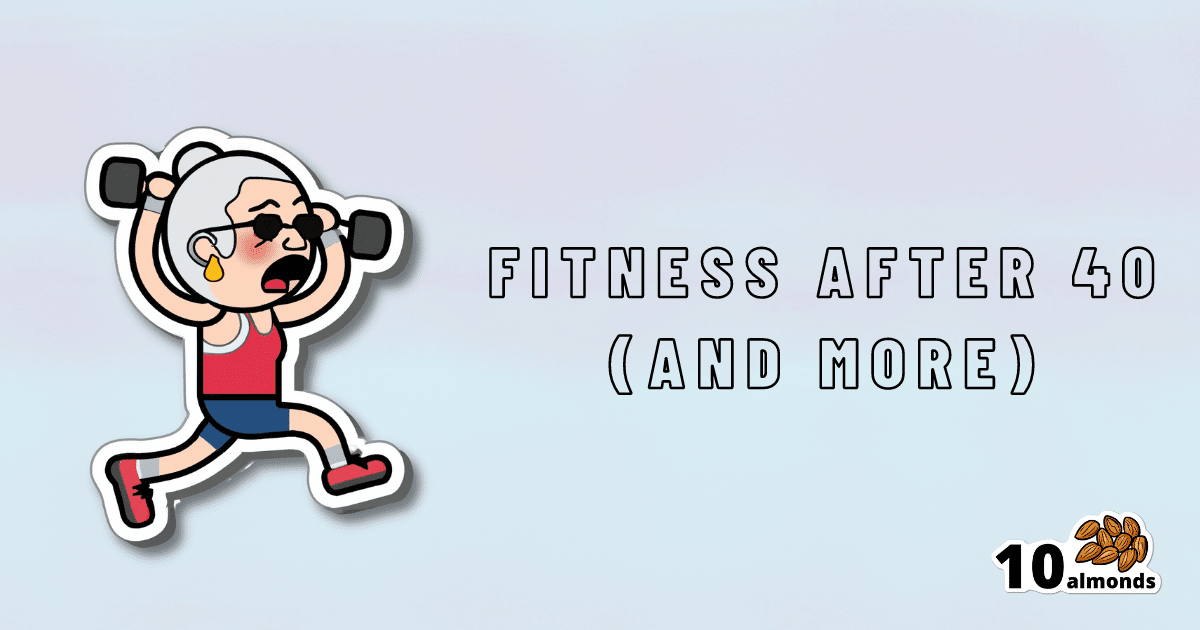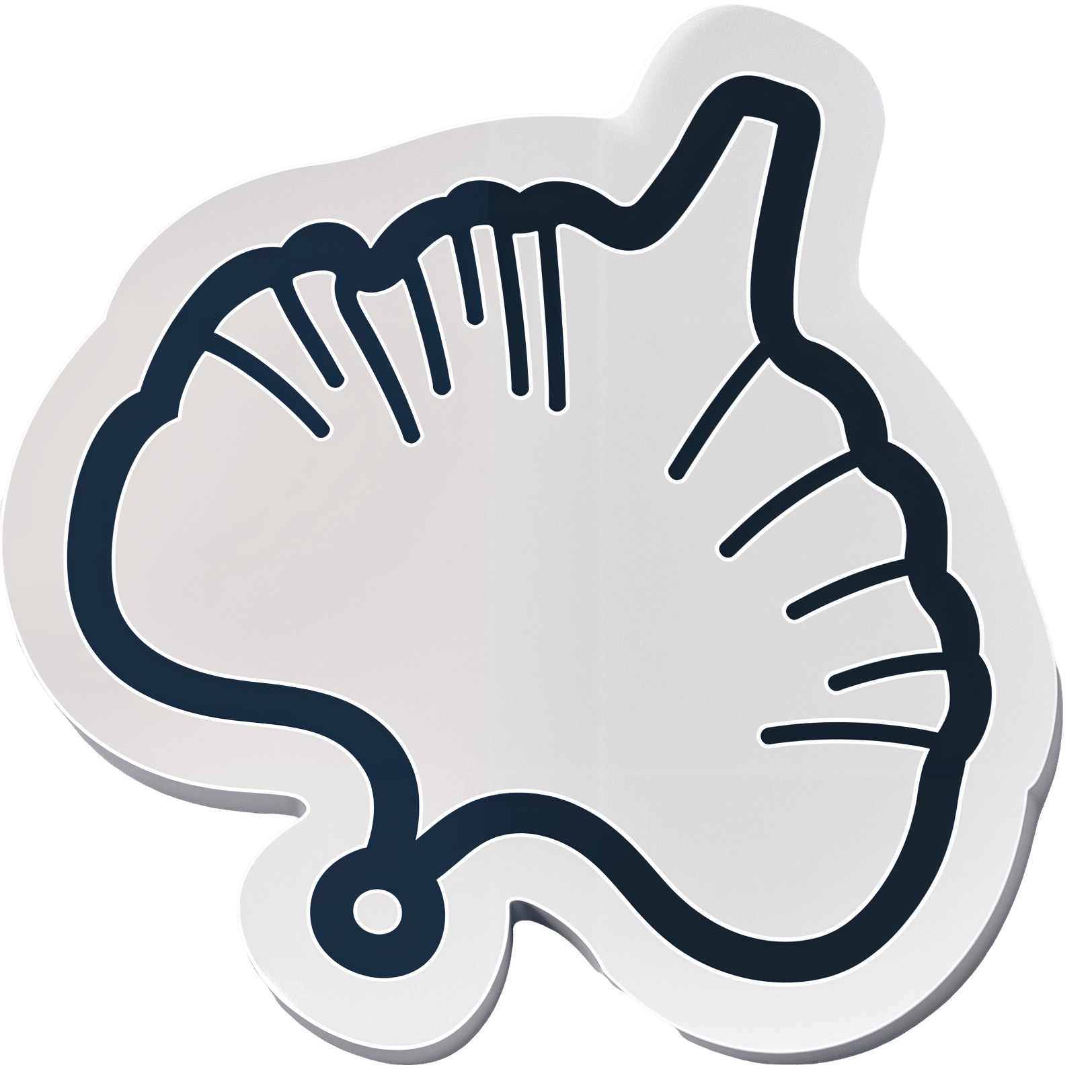
Ginkgo Biloba, For Memory And, Uh, What Else Again?
10almonds is reader-supported. We may, at no cost to you, receive a portion of sales if you purchase a product through a link in this article.
Ginkgo biloba, for memory and, uh, what else again?
Ginkgo biloba extract has enjoyed use for thousands of years for an assortment of uses, and has made its way from Traditional Chinese Medicine, to the world supplement market at large. See:
Ginkgo biloba: A Treasure of Functional Phytochemicals with Multimedicinal Applications
But what does the science say about the specific claims?
Antioxidant & anti-inflammatory
We’re going to lump these two qualities together for examination, since one invariably leads to the other.
A quick note: things that have antioxidant and anti-inflammatory properties, often also help guard against cancer and aging. However, in this case, there are few good studies pertaining to anti-aging, and none that we could find pertaining to anti-cancer potential.
So, does it have antioxidant and anti-inflammatory properties, first?
Yes, it has potent antioxidants that do fight inflammation; this is clear, from an abundance of in vitro and in vivo studies, including with human patients:
- Properties of Ginkgo biloba L.: incl. Antioxidant Characterization
- Anti-inflammatory effects of Ginkgo biloba extract against hippocampal neuronal injury
- Gingko biloba-derived lactone prevents osteoarthritis by activating anti-inflammatory signaling pathway
- The anti-inflammatory properties of Ginkgo biloba for the treatment of pulmonary diseases
In short: it helps, and there’s plenty of science for it.
What about anti-aging effects?
For this, there is science, but a lot of the science is not great. As one team of researchers concluded while doing a research review of their own:
❝Based on the reviewed information regarding EGb’s effects in vitro and in vivo, most have reported very positive outcomes with strong statistical analyses, indicating that EGb must have some sort of beneficial effect.
However, information from the reported clinical trials involving EGb are hardly conclusive since many do not include information such as the participant’s age and physical condition, drug doses administered, duration of drug administered as well as suitable control groups for comparison.
We therefore call on clinicians and clinician-scientists to establish a set of standard and reliable standard operating procedure for future clinical studies to properly evaluate EGb’s effects in the healthy and diseased person since it is highly possible it possesses beneficial effects.❞
Translation from sciencese: “These results are great, but come on, please, we are begging you to use more robust methodology”
If you’d like to read the review in question, here it is:
Advances in the Studies of Ginkgo Biloba Leaves Extract on Aging-Related Diseases
Does it have cognitive enhancement effects?
The claims here are generally that it helps:
- improve memory
- improve focus
- reduce cognitive decline
- reduce anxiety and depression
Let’s break these down:
Does it improve memory and cognition?
Ginkgo biloba was quite popular for memory 20+ years ago, and perhaps had an uptick in popularity in the wake of the 1999 movie “Analyze This” in which the protagonist psychiatrist mentions taking ginkgo biloba, because “it helps my memory, and I forget what else”.
Here are a couple of studies from not long after that:
- A double-blind, placebo-controlled, randomized trial of Ginkgo biloba in cognitively intact older adults: neuropsychological findings
- Effects of Ginkgo biloba on mental functioning in healthy volunteers
In short:
- in the first study, it helped in standardized tests of memory and cognition (quite convincing)
- In the second study, it helped in subjective self-reports of mental wellness (also placebo-controlled)
On the other hand, here’s a more recent research review ten years later, that provides measures of memory, executive function and attention in 1132, 534 and 910 participants, respectively. That’s quite a few times more than the individual studies we cited above, by the way. They concluded:
❝We report that G. biloba had no ascertainable positive effects on a range of targeted cognitive functions in healthy individuals❞
Read: Is Ginkgo biloba a cognitive enhancer in healthy individuals? A meta-analysis
Our (10almonds) conclusion: we can’t say either way, on this one.
Does it have neuroprotective effects (i.e., against cognitive decline)?
Yes—probably by the same mechanism will discuss shortly.
- Ginkgo Biloba for Mild Cognitive Impairment and Alzheimer’s Disease: A Systematic Review and Meta-Analysis of Randomized Controlled Trials
- Treatment effects of Ginkgo biloba extract on symptoms of dementia: meta-analysis of randomized controlled trials
Can it help against depression and anxiety?
Yes—but probably indirectly by the mechanism we’ll get to in a moment:
- Role of Ginkgo biloba extract as an adjunctive treatment of elderly patients with depression
- Ginkgo biloba in generalized anxiety disorder and adjustment disorder with anxious mood
Likely this helps by improving blood flow, as illustrated better per:
Efficacy of ginkgo biloba extract as augmentation of venlafaxine in treating post-stroke depression
Which means…
Bonus: improved blood flow
This mechanism may support the other beneficial effects.
See: Ginkgo biloba extract improves coronary blood flow in healthy elderly adults
Is it safe?
Ginkgo biloba extract* is generally recognized as safe.
- However, as it improves blood flow, please don’t take it if you have a bleeding disorder.
- Additionally, it may interact badly with SSRIs, so you might want to avoid it if you’re taking such (despite it having been tested and found beneficial as an adjuvant to citalopram, an SSRI, in one of the studies above).
- No list of possible contraindications can be exhaustive, so please consult your own doctor/pharmacist before taking something new.
*Extract, specifically. The seeds and leaves of this plant are poisonous. Sometimes “all natural” is not better.
Where can I get it?
As ever, we don’t sell it (or anything else), but here’s an example product on Amazon
Enjoy!
Share This Post
Don’t Forget…
Did you arrive here from our newsletter? Don’t forget to return to the email to continue learning!
Recommended
Learn to Age Gracefully
Join the 98k+ American women taking control of their health & aging with our 100% free (and fun!) daily emails:
-
The Other Circadian Rhythms
10almonds is reader-supported. We may, at no cost to you, receive a portion of sales if you purchase a product through a link in this article.
We’ve talked before about how circadian rhythm pertains not just to when it is ideal for us to sleep or be awake, but also at what times it is best to eat, exercise, and so forth:
The Circadian Rhythm: Far More Than Most People Know
Most people just know about the light consideration, per for example:
- How light can shift your mood and mental health, and
- How light tells you when to sleep, focus and poo
When your body parts clock on and off at the wrong time…
Now, new research has brought attention to how these things and more are governed by different physiological clocks within our bodies—and what this means for our health. In other words, if you are doing the various things at different times than you “should”, you will be training the different parts of your body (each with their independent clocks) to be on a different schedule, and so the different parts of your body will out of temporal sync with each other.
To put this in jet-lag terms: if your brain is in New York, while your heart is in Istanbul (not Constantinople) and your gut is in Tokyo, then this arrangement is not good for the health.
As for how it is not good for your health (i.e. the consequences) there’s still research to be done on some of the longer-term implications, but in the short term, one of the biggest effects is on our mood—most notably, increasing depression scores significantly.
And even more importantly, this is in the real world. That is to say, until quite recently, most data we had from studies on the circadian rhythm was from sleep clinic laboratories, which is great for RCTs but will always have as a limitation that someone sleeping in a lab is going to have some differences than someone sleeping in their own bed at home.
As the researchers said:
❝A critical step to addressing this is the noninvasive collection of physiological time-series data outside laboratory settings in large populations. Digital tools offer promise in this endeavor. Here, using wearable data, we first quantify the degrees of circadian disruption, both between different internal rhythms and between each internal rhythm and the sleep-wake cycle. Our analysis, based on over 50,000 days of data from over 800 first-year training physicians, reveals bidirectional links between digital markers of circadian disruption and mood both before and after they began shift work, while accounting for confounders such as demographic and geographic variables. We further validate this by finding clinically relevant changes in the 9-item Patient Health Questionnaire score.❞
Read in full: The real-world association between digital markers of circadian disruption and mental health risks
That questionnaire by the way sounds like an arbitrary thing they just made up, but the PHQ-9 (as it is known to its friends) is in fact the current intentional gold standard for measuring depression; we share it at the top of our article about depression, here:
The Mental Health First-Aid That You’ll Hopefully Never Need ← the test takes 2 minutes and you get immediate results
Want to know more?
For more about getting one’s entire self back into temporal sync (hey, wasn’t that the plot of a Star Trek episode?), sleep specialist Dr. Michael Breus wrote this excellent book that we reviewed a little while back:
Enjoy!
Share This Post
-
Replacing Sugar: Top 10 Anti-Inflammatory Sweet Foods
10almonds is reader-supported. We may, at no cost to you, receive a portion of sales if you purchase a product through a link in this article.
For those with a sweet tooth, it can be challenging to indulge one’s desires while also avoiding inflammation. Happily, Dr. Jia-Yia Lui has scientific insights to share!
Dr. Liu’s Top 10
We’ll not keep them a mystery; they are:
- Grapes
- Goji berries
- Barberries
- Persimmons
- Longans
- Lychees
- Raisins¹
- Applesauce²
- Plums³
- Dates
¹Yes, these are technically also grapes, but there are enough differences that Dr. Liu tackles them separately.
²It makes a difference how it’s made, though.
³And dried plums, in other words, prunes.For more details on all of these, plus their extra benefits and relevant considerations, enjoy:
Click Here If The Embedded Video Doesn’t Load Automatically!
Want to learn more?
You might also like to read:
- How to Prevent (or Reduce) Inflammation
- The Not-So-Sweet Science Of Sugar Addiction
- 10 Ways To Balance Blood Sugars
Take care!
Share This Post
-
Keep Inflammation At Bay
10almonds is reader-supported. We may, at no cost to you, receive a portion of sales if you purchase a product through a link in this article.
How to Prevent (or Reduce) Inflammation
You asked us to do a main feature on inflammation, so here we go!
Before we start, it’s worth noting an important difference between acute and chronic inflammation:
- Acute inflammation is generally when the body detects some invader, and goes to war against it. This (except in cases such as allergic responses) is usually helpful.
- Chronic inflammation is generally when the body does a civil war. This is almost never helpful.
We’ll be tackling the latter, which frees up your body’s resources to do better at the former.
First, the obvious…
These five things are as important for this as they are for most things:
- Get a good diet—the Mediterranean diet is once again a top-scorer
- Exercise—move and stretch your body; don’t overdo it, but do what you reasonably can, or the inflammation will get worse.
- Reduce (or ideally eliminate) alcohol consumption. When in pain, it’s easy to turn to the bottle, and say “isn’t this one of red wine’s benefits?” (it isn’t, functionally*). Alcohol will cause your inflammation to flare up like little else.
- Don’t smoke—it’s bad for everything, and that goes for inflammation too.
- Get good sleep. Obviously this can be difficult with chronic pain, but do take your sleep seriously. For example, invest in a good mattress, nice bedding, a good bedtime routine, etc.
*Resveratrol (which is a polyphenol, by the way), famously found in red wine, does have anti-inflammatory properties. However, to get enough resveratrol to be of benefit would require drinking far more wine than will be good for your inflammation or, indeed, the rest of you. So if you’d like resveratrol benefits, consider taking it as a supplement. Superficially it doesn’t seem as much fun as drinking red wine, but we assure you that the results will be much more fun than the inflammation flare-up after drinking.
About the Mediterranean Diet for this…
There are many causes of chronic inflammation, but here are some studies done with some of the most common ones:
- Beneficial effect of Mediterranean diet in systemic lupus erythematosus patients
- How the Mediterranean diet and some of its components modulate inflammatory pathways in arthritis
- The effects of the Mediterranean diet on biomarkers of vascular wall inflammation and plaque vulnerability in subjects with high risk for cardiovascular disease
- Adherence to Mediterranean diet and 10-year incidence of diabetes: correlations with inflammatory and oxidative stress biomarkers*
*Type 1 diabetes is a congenital autoimmune disorder, as the pancreas goes to war with itself. Type 2 diabetes is different, being a) acquired and b) primarily about insulin resistance, and/but this is related to chronic inflammation regardless. It is also possible to have T1D and go on to develop insulin resistance, and that’s very bad, and/but beyond the scope of today’s newsletter, in which we are focusing on the inflammation aspects.
Some specific foods to eat or avoid…
Eat these:
- Leafy greens
- Cruciferous vegetables
- Tomatoes
- Fruits in general (berries in particular)
- Healthy fats, e.g. olives and olive oil
- Almonds and other nuts
- Dark chocolate (choose high cocoa, low sugar)
Avoid these:
- Processed meats (absolute worst offenders are hot dogs, followed by sausages in general)
- Red meats
- Sugar (includes most fruit juices, but not most actual fruits—the difference with actual fruits is they still contain plenty of fiber, and in many cases, antioxidants/polyphenols that reduce inflammation)
- Dairy products (unless fermented, in which case it seems to be at worst neutral, sometimes even a benefit, in moderation)
- White flour (and white flour products, e.g. white bread, white pasta, etc)
- Processed vegetable oils
See also: 9 Best Drinks To Reduce Inflammation, Says Science
Supplements?
Some supplements that have been found to reduce inflammation include:
(links are to studies showing their efficacy)
Consider Intermittent Fasting
Remember when we talked about the difference between acute and chronic inflammation? It’s fair to wonder “if I reduce my inflammatory response, will I be weakening my immune system?”, and the answer is: generally, no.
Often, as with the above supplements and dietary considerations, reducing inflammation actually results in a better immune response when it’s actually needed! This is because your immune system works better when it hasn’t been working in overdrive constantly.
Here’s another good example: intermittent fasting reduces the number of circulating monocytes (a way of measuring inflammation) in healthy humans—but doesn‘t compromise antimicrobial (e.g. against bacteria and viruses) immune response.
See for yourself: Dietary Intake Regulates the Circulating Inflammatory Monocyte Pool ← the study is about the anti-inflammatory effects of fasting
Share This Post
Related Posts
-
How Stress Affects Your Body
10almonds is reader-supported. We may, at no cost to you, receive a portion of sales if you purchase a product through a link in this article.
Dr. Sharon Bergquist gives us a tour:
Stress, from the inside out
Stress is a natural physical and emotional response to challenges or being overwhelmed. It can be beneficial in short-term situations (e.g. escape from a tiger) but is harmful when prolonged or frequent (e.g. escape the rat-race).
Immediate physiological response: cortisol, adrenaline (epinephrine), and norepinephrine are released by the adrenal glands.
The effects this has (non-exhaustive list; we’re just citing what’s in the video here):
- Cortisol impairs blood vessel function, promoting atherosclerosis.
- Adrenaline increases heart rate and blood pressure, leading to hypertension.
- Stress disrupts the brain-gut connection, causing:
- Digestive issues like irritable bowel syndrome and heartburn.
- Changes in gut bacteria composition, potentially affecting overall health.
- Cortisol increases appetite and cravings for energy-dense “comfort foods”.
- This in turn promotes visceral fat storage, which raises the risk of heart disease and insulin resistance.
- Immune-specific effects:
- Stress hormones initially aid in healing and immune defense.
- Chronic stress weakens immune function (by over-working it constantly), increasing susceptibility to infections and slowing recovery.
- Other systemic effects:
- Chronic stress shortens telomeres, which protect chromosomes. Shortened telomeres accelerate cellular aging.
- Chronic stress can also cause acne, hair loss, sexual dysfunction, headaches, muscle tension, fatigue, irritability, and difficulty concentrating.
So, how to manage this? The video says that viewing stressful situations as controllable challenges, rather than insurmountable threats, leads to better short-term performance and long-term health.
Which would be wonderful, except that usually things are stressful precisely because they are not entirely within the field of our control, and the usual advice is to tend to what we can control, and accept what we can’t.
However… That paradigm still leaves out the very big set of “this might be somewhat within our control or it might not; we really don’t know yet; we can probably impact it but what if we don’t do enough, or take the wrong approach and do the wrong thing? And also we have 17 competing stressors, which ones should we prioritize tending to first, and…” and so on.
To that end, we suggest checking out the “Want to learn more?” link we drop below the video today, as it is about managing stress realistically, in a world that, if we’re honest about it, can sometimes be frankly unmanageable.
Meanwhile, enjoy:
Click Here If The Embedded Video Doesn’t Load Automatically!
Want to learn more?
You might also like to read:
Heart Health vs Systemic Stress ← this is good in and of itself, and also links to other stress-related resources of ours
Take care!
Don’t Forget…
Did you arrive here from our newsletter? Don’t forget to return to the email to continue learning!
Learn to Age Gracefully
Join the 98k+ American women taking control of their health & aging with our 100% free (and fun!) daily emails:
-
Figs vs Passion Fruit – Which is Healthier?
10almonds is reader-supported. We may, at no cost to you, receive a portion of sales if you purchase a product through a link in this article.
Our Verdict
When comparing figs to passion fruit, we picked the passion fruit.
Why?
Both are top-tier fruits! But the passion fruit is just that bit more passionate about delivering healthy nutrients:
In terms of macros, passion fruit has slightly more carbs, notably more protein, and a lot more fiber, giving it the win in this category.
In the category of vitamins, figs have more of vitamins B1, B5, B6, E, and K, while passion fruit has more of vitamins A, B2, B3, B9, C, and choline, making for a marginal win by the numbers for passion fruit here.
When it comes to minerals, figs have more calcium, manganese, and zinc, while passion fruit has more copper, iron, magnesium, phosphorus, potassium, and selenium. A clearer win for passion fruit this time.
Adding up the sections makes for an easy overall win for passion fruit, but again, figs are really a top-tier fruit too; passion fruit just beats them! By all means enjoy either or both; diversity is good!
Want to learn more?
You might like:
Top 8 Fruits That Prevent & Kill Cancer ← figs have antitumor effects specifically, while removing carcinogens too, and additionally sensitizing cancer cells to light therapy
Enjoy!
Don’t Forget…
Did you arrive here from our newsletter? Don’t forget to return to the email to continue learning!
Learn to Age Gracefully
Join the 98k+ American women taking control of their health & aging with our 100% free (and fun!) daily emails:
-
10almonds Subcribers Take The Wheel!
10almonds is reader-supported. We may, at no cost to you, receive a portion of sales if you purchase a product through a link in this article.
❓ Q&A With 10almonds Subscribers!
Q: What kind of salt is best for neti pots?
A: Non-iodised salt is usually recommended, but really, any human-safe salt is fine. By this we mean for example:
- Sodium chloride (like most kitchen salts),
- Potassium chloride (as found in “reduced sodium” kitchen salts), or
- Magnesium sulfate (also known as epsom salts).
Q: You talked about spearmint as reducing testosterone levels, what about ginseng for increasing them?
A: Hormones are complicated and often it’s not a simple matter of higher or lower levels! It can also be a matter of…
- how your body converts one thing into another
- how your body responds (or not) to something according to how the relevant hormone’s receptors are doing
- …and whether there’s anything else blocking those receptors.
All this to say: spearmint categorically is an anti-androgen, but the mechanism of action remains uncertain.
Panax ginseng, meanwhile, is one of the most well-established mysteries in herbal medicine.
Paradoxically, it seems to improve both male and female hormonal regulation, despite being more commonly associated with the former.
- It doesn’t necessarily increase or decrease testosterone or estrogen levels (but it can, even if indirectly)
- It does improve sexual function
- …and alleviates symptoms associated with conditions as varied as:
- Late-onset hypogonadism (common for men during the andropause)
- Benign prostate hyperplasia (again common for men during the andropause)
- …and also counteracts unwanted side-effects of finasteride. Finasteride is often taken by men as a hair loss remedy or, less often but critically, in the case of an enlarged prostate.
But it also…
- Alleviates symptoms of PCOS (polycystic ovary syndrome, which effects around 20% of women)
- May even be an effective treatment for PCOS (rat model only so far)
- It also may improve female reproductive fertility more generally (the studies are down to fruit flies now though)
Bottom line: Panax ginseng is popularly taken to improve natural hormone function, a task at which it appears to excel.
Scientists are still working out exactly how it does the many things it appears to do.
Progress has been made, and it clearly is science rather than witchcraft, but there are still far more unanswered questions than resolved ones!
Q: I like that the quizzes (I’ve done two so far) give immediate results , with no “give us your email to get your results”. Thanks!
A: You’re welcome! That’s one of the factors that influences what things we include here! Our mission statement is “to make health and productivity crazy simple”, and the unwritten part of that is making sure to save your time and energy wherever we reasonably can!
Q: Do you know if adrafanil is as good as modafinil? It seems to be a lot cheaper for the same result?
A: Adrafinil is the pro-drug of modafinil. What this means is that if you take it, your own liver will use it to make modafinil inside you. So the end result is chemically the same drug.
As to whether it’s as good, it depends what you need. It’s worth noting that anything that taxes liver function can be harmful if you take too much, and/or your liver is already strained for some reason.
If in doubt, consult a doctor! And if it’s something that’s accessible to you, a recent lipids test (a kind of blood test that checks your liver health) is always a good thing to have.
Q: Would love to see your take on polyphasic sleep!
A: Watch this space
Don’t Forget…
Did you arrive here from our newsletter? Don’t forget to return to the email to continue learning!
Learn to Age Gracefully
Join the 98k+ American women taking control of their health & aging with our 100% free (and fun!) daily emails:

